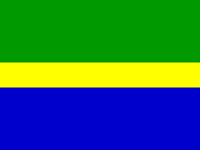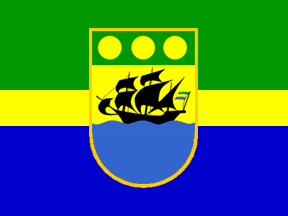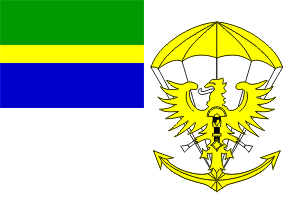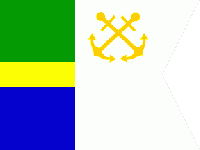Gabon

| |
| Languages: | |
| Official: | Francien |
| Others: | Fang, Myene, Nzebi, Bapounou/Eschira, Bandjabi |
| Cities: | |
| Capital: | Libreville |
| Other: | ... |
| President: | Jean Taira |
| Prime Minister: | |
| Area: | 267,667 sq km |
| Population: | 1 400 000 inhabitants |
| Independence: | from France |
| Declared: | 17 August 1960 |
| Recognized: | 17 August 1960 |
| Currency: | CFA Franc |
| Organizations: | Gallosphere |
General information
Administration
Government
One-party dictatorship.
History
While part of French Congo, Gabon was recipient of a large number of repatriated Africans from Louisianne following the slave rebellions of Haÿti. Historians calculate some 30%-40% of Louisiannan slaves were repatriated. While most were willing immigrants, there are documented cases that some, notably from some of the plantations along the Mississippi river, that were not.
Gabon received independence from France on 17 August, 1960. Presidents are limited to two seven-year terms. The current president is Jean Taira (平約翰), who was born to a father (Zhèng Zhiping/鄭治平) originally from Yongjia (永嘉)/Wenzhou (溫州) but who moved to Japan, Gaulhe, and then finally Gabon and a mother born to a tribal chieftain from former Portuguese Congo. The president took the Japanese reading of the second character of his father's first name as his surname, Taira (たいら), in order to avoid sinophobic hostility as a young man in his native country and in France where he studied.
Gabon supported Beninese insurgents in the Togolese Civil War.
Languages
Francien is the most commonly spoken language, and serves as a lingua franca for the nation, however there are a large number of local languages in the country. A sort of patois with a heavy Francien superstrata is slowly developing, especially with continued and increasing trade between the country and its former colonial occupier.
Religion
The majority of Gabon is Catholic although Protestants from northern Europe and America set up missions there in the final years of the 19th Century. Animism is still a highly common type of belief for people across the country.



